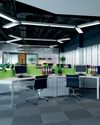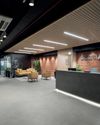
Two types of knowledge have shaped the path for the professionalisation of architecture and the contingent skills claimed by architects.
Occupational and professional powers are related to technical (i.e., the component transferable by standardisation and routinisation) and indeterminate (i.e., the non-transferable component, such as artistic initially inaccessible components of new research) elements of professional knowledge.
In architecture, technical aspects are adapted from engineering and technological fields, such as civil and mechanical engineering and computerised information.
The utilisation of technical knowledge is a significant source of income because it is an instrumental tool (e.g, BIM and CAD programmes) in carrying out architectural tasks, informed decisions and input in the early design process. Nonetheless, the progressively technical nature of professional knowledge dramatically develops deprofessionalisation.
Therefore, technical aspects may unintentionally decrease professional autonomy. By contrast, the indeterminate components of professional practice, including aesthetics and generating new scientific knowledge, might permit architects to preserve some exclusive professional autonomy.
Aesthetics is scientific and nontransferable, as knowledge cannot support evidence-based design until it is produced and shared. These contributions are essential to the users, clients, and society.
However, there are concerns about architectural knowledge domains using knowledge formalisation.
AUTONOMY
Bu hikaye Commercial Design dergisinin August 2022 sayısından alınmıştır.
Start your 7-day Magzter GOLD free trial to access thousands of curated premium stories, and 9,000+ magazines and newspapers.
Already a subscriber ? Giriş Yap
Bu hikaye Commercial Design dergisinin August 2022 sayısından alınmıştır.
Start your 7-day Magzter GOLD free trial to access thousands of curated premium stories, and 9,000+ magazines and newspapers.
Already a subscriber? Giriş Yap

WORKING TOGETHER
Professor Louise Valentine, Head of the Design School at Heriot-Watt University, on the importance of inclusive design in the workplace

WHERE CREATIVITY WORKS
Alhad Gore of Beyond Design Architects & Consultants brings his architectural expertise to life in the new office for Atul Patel Architects, blending functionality with creative flair to craft a workspace that inspires innovation and collaboration

FACILITATE INTELLIGENCE
How AI is redefining the future of facility management

DESIGNING A BETTER FUTURE
How inclusive office designs are shaping the modern workspace

ADDED VALUE
Is a good project manager the secret to success for a complex commercial design project?

RECOGNISING EXCELLENCE ACROSS THE SPECTRUM
The Grand Jury Meet of the third edition of Commercial Design Awards, a cornerstone event in India’s commercial design landscape, unfolded amidst the awe-inspiring expanse of the Welspun Global Carpet Plant in Hyderabad.

A VISION FOR 'TOTAL BUSINESS ECOSYSTEMS'
Jitu Virwani, Chairman and Managing Director of Embassy Group, redefines India's commercial real estate landscape by pioneering integrated, future-ready, and sustainable business ecosystems.

AWFIS TO DESIGN, MANAGE 165K SQ FT OFFICE SPACE FOR NSE IN MUMBAI
Awfis Space Solutions Limited on Tuesday said it will design and manage 1.65 lakh square feet of office space in Mumbai for the National Stock Exchange.

MACROTECH ACQUIRES 2.8 ACRES IN HINJEWADI
Realty developer Lodha, listed as Macrotech Developers, has acquired a 2.8acre plot of land in Pune's Hinjewadi area from Paranjape Schemes.

EMBASSY OFFICE PARKS REIT APPOINTS RITWIK BHATTACHARJEE AS INTERIM CEO
Embassy Office Parks REIT on Thursday appointed Ritwik Bhattacharjee as its interim Chief Executive Officer (CEO) with immediate effect, following Sebi’s order to suspend its CEO Arvind Maiya.